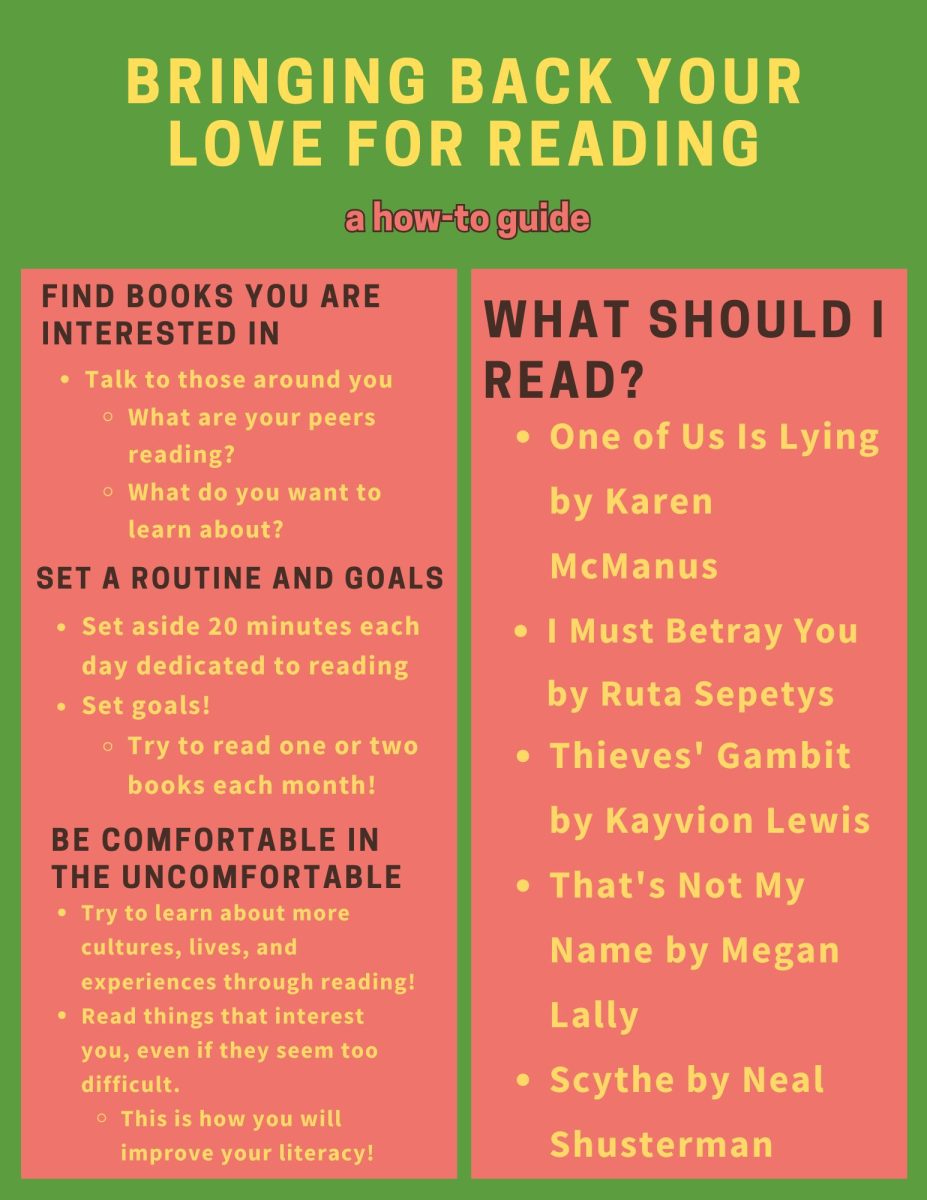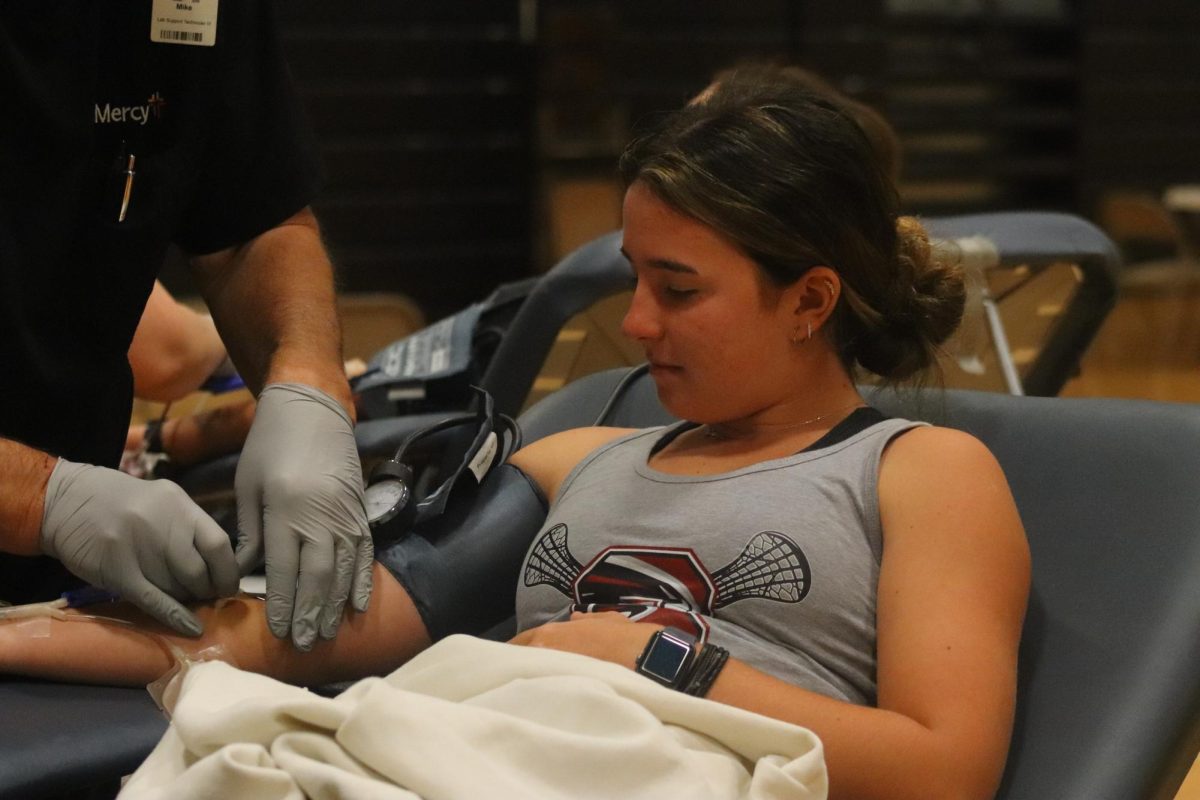This year, administration has put an emphasis on improving reading scores, and pushing for stronger literacy at Summit. This is not an isolated issue; schools across the country report lower reading scores since the COVID-19 Pandemic. Studies from the National Library of Medicine show that reading improves your cognitive skills so greatly that reading one chapter of a book a day can expand your lifespan and improve your overall brain health.
Summit’s push for greater literacy has been spread across campus in the first weeks of school. Language Arts teacher and Department Chair Cindy Golden said how reading can benefit students.
“[Reading] doesn’t have to be for class, but also, if [you’re] in a class, [you] should be reading to learn, not just being told what [you] should learn,” Golden said.
Summit’s library shelves are full of books that can cater to anyone’s interests. Librarian Margaret Sullivan said that she has seen more students come into the library to get a book.
“I think we had a lot more checkouts in the first month [of school this year]. [I think] part of that is because we’ve always had language arts teachers who bring their classes up to check out books, but I think we’ve had a few more [classes] this year,” Sullivan said.
Literacy rates have been on the decline for many years, regardless of the pandemic. Golden said that due to the current speed and expectations of the world, literacy rates are bound to decline.
“I think people want instant, ‘here’s the answer, go’. Kind of [an] idea we live in, like [a] click world, where you can get Amazon right away. So I think that corresponds a lot with that reading, we want a fast answer instead of that,” Golden said.
Being able to jump into reading is a difficult task, Golden suggests going back to the basics to jumpstart your love for reading.
“It goes back to that elementary school idea that you should be reading 20 minutes every day,” Golden said.
Reading is something that was once embedded in many children, but in order to remedy the declining reading rates, there are things that you can do. Sullivan suggests talking with those around you to spark your interests.
“[To restart your love for reading], get recommendations from friends, also from teachers, whoever you know, anybody, particularly people you know, who like things that you would like,” Sullivan said.
Even though it sounds like a simple task, the busy lives of teenagers can overwhelm the need to read 20 minutes each day. Sullivan said that she recommends creating a routine out of reading.
“Set aside 20 minutes maybe before you go to bed to read. So that’s part of your routine. And I would also say, if you really are having a hard time getting into it, go back and reread something that you love, because there’s nothing wrong with rereading a book,” Sullivan said.







